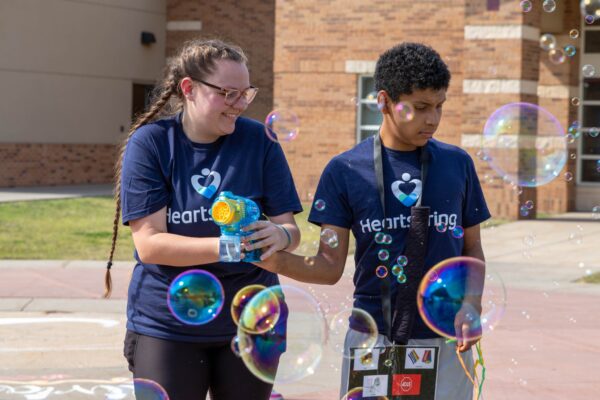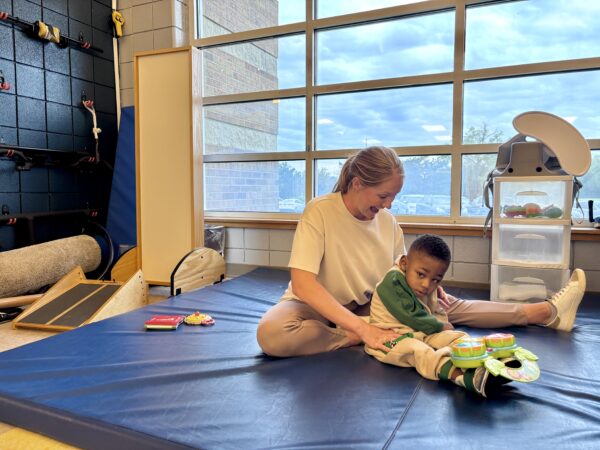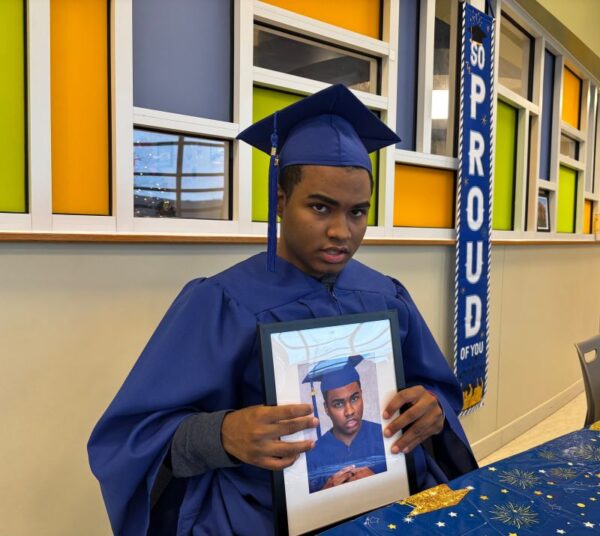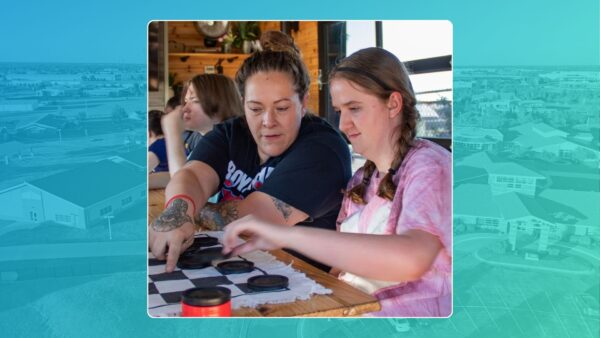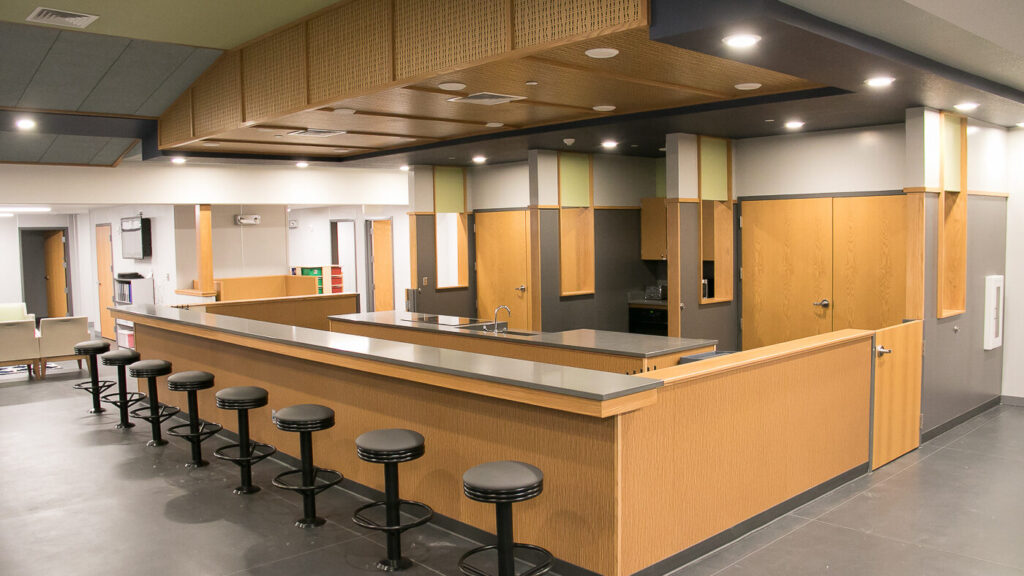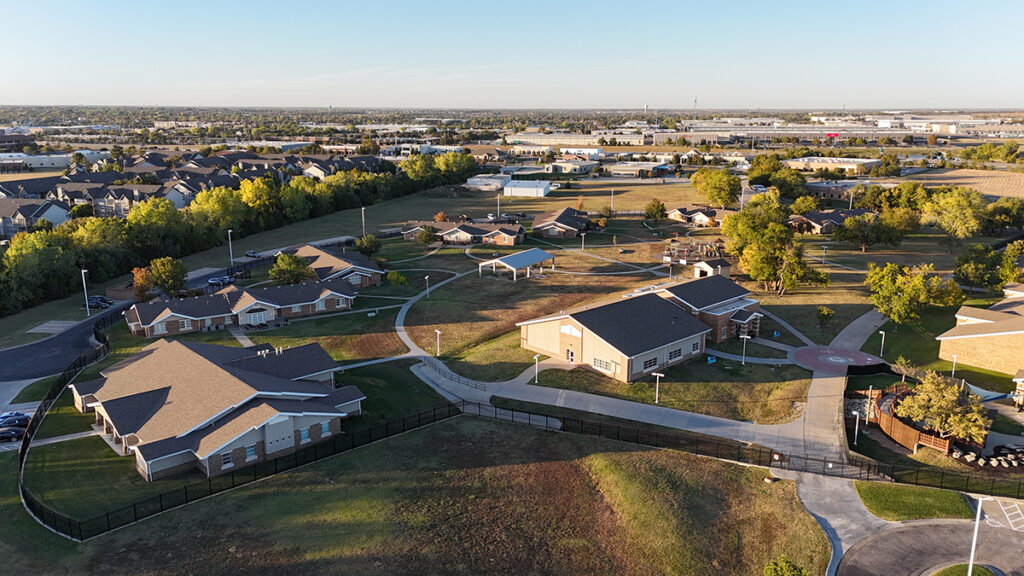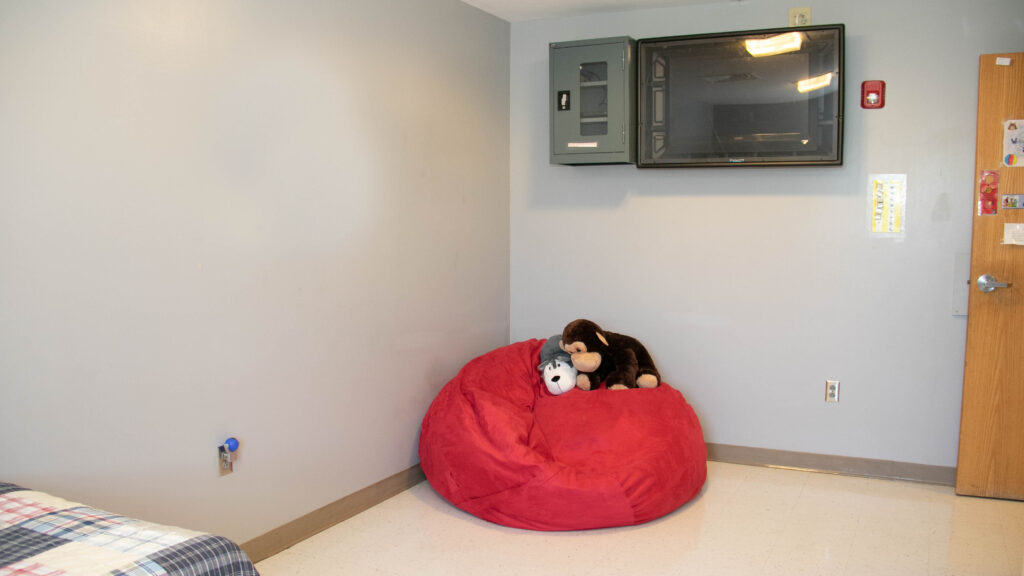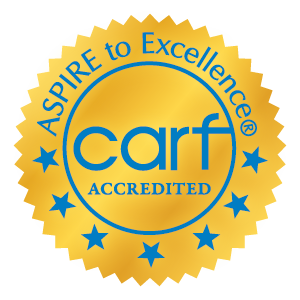
Home Life at Heartspring
Our Residential Program Provides Students with a Home Away from Home
Heartspring provides a highly structured environment for children who need a consistent routine to develop strategies to regulate their behavior.
Home Life at Heartspring
Our Residential Program Provides Students with a Home Away from Home
Heartspring provides a highly structured environment for children who need a consistent routine to develop strategies to regulate their behavior.
Residential Home Highlights
Our Group Homes Help Students Thrive
Our uniquely designed group homes and campus create opportunities for students to develop their independent living skills like hygiene, leisure, household care contributions, and independent communication.
- With 24/7 care, staff support consistent programming across every environment.
- Personal and communal spaces enhance student comfort, safety, and skill development.
- On and off-campus group homes with private bedrooms.
- Students can safely explore our adaptive playground, walking and biking trails, and a family gathering patio within our enhanced perimeter fence.
Residential Fast Facts
37 Acres
Our enhanced perimeter fence allows children to roam freely and safely across campus.
24/7 Care
Consistent and structured environments and experiences.
68-Student Capacity
Our residential program supports students across nine group homes.
96%
Overall Parent Satisfaction Rate
After-School Activities
Opportunities in the Community
Daily Living + Skill Development
Hygiene, leisure, household care contributions, and independent communication are a few areas students work on with our expert staff.
Extracurricular Activities
Our students enjoy fun on and off-campus to enrich their lives beyond our classrooms and allow them to be part of the community.
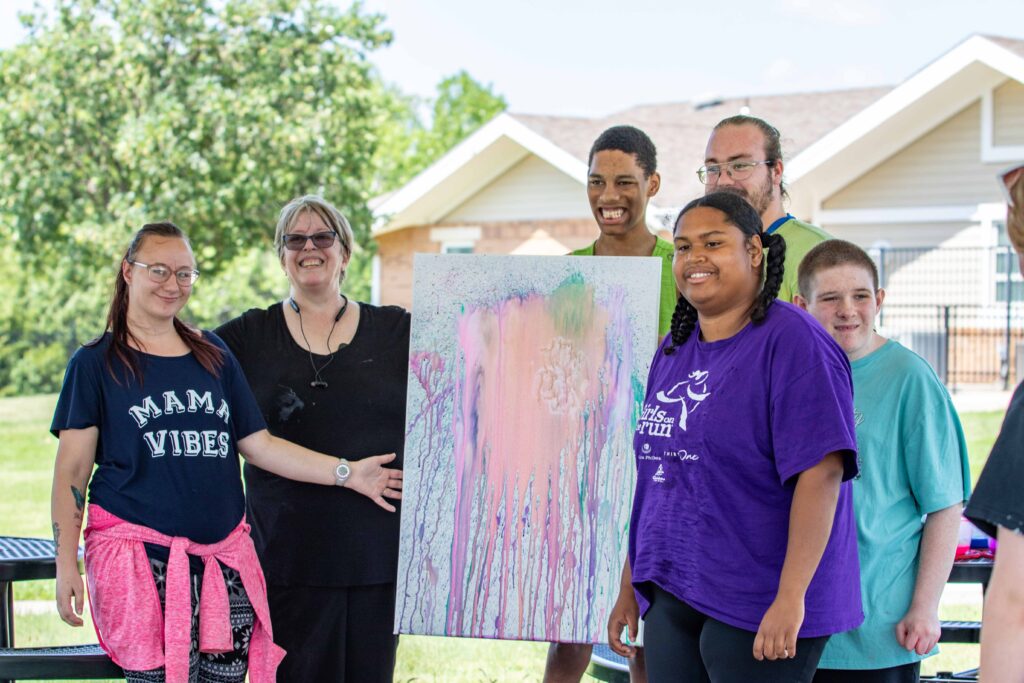
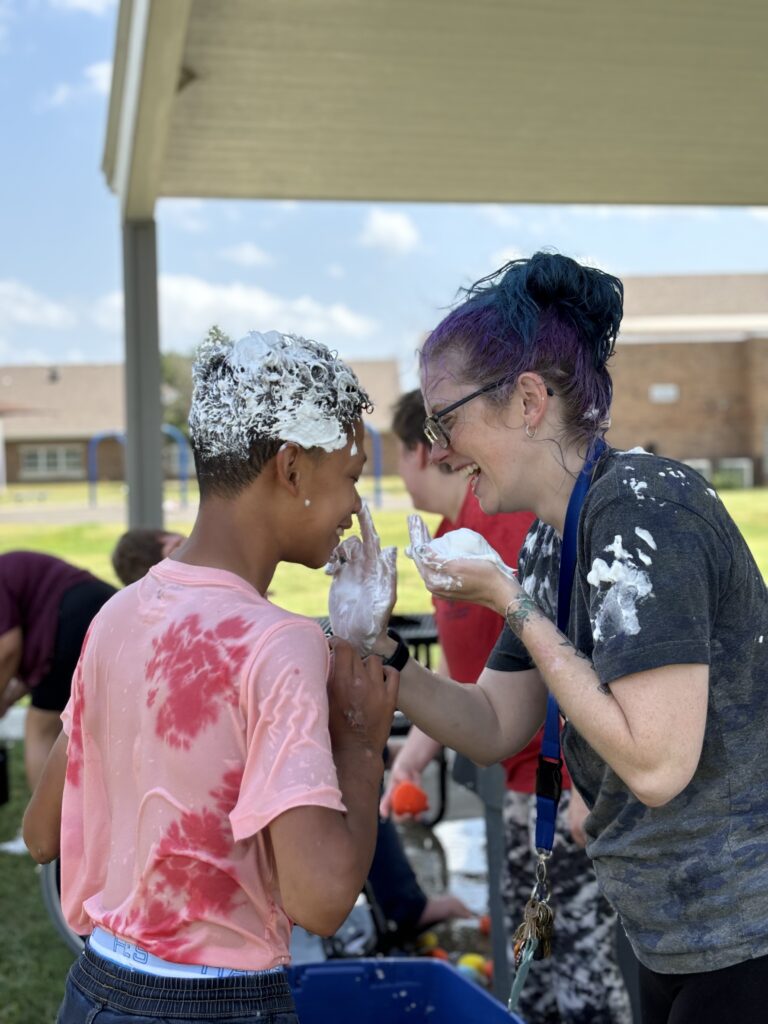

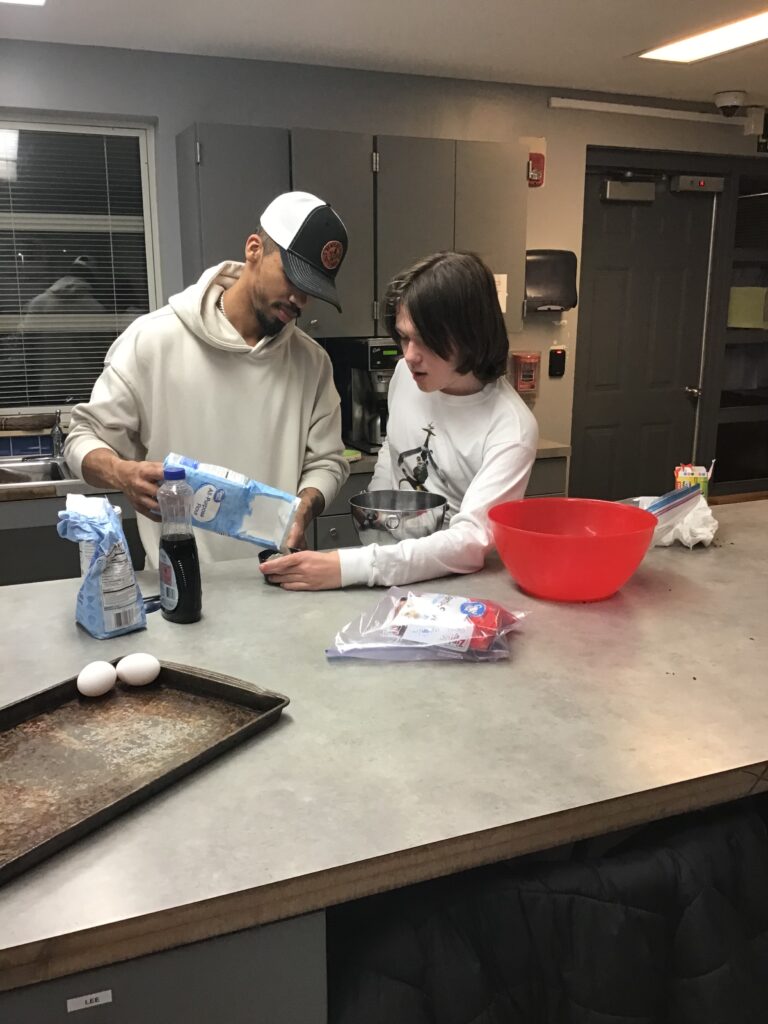
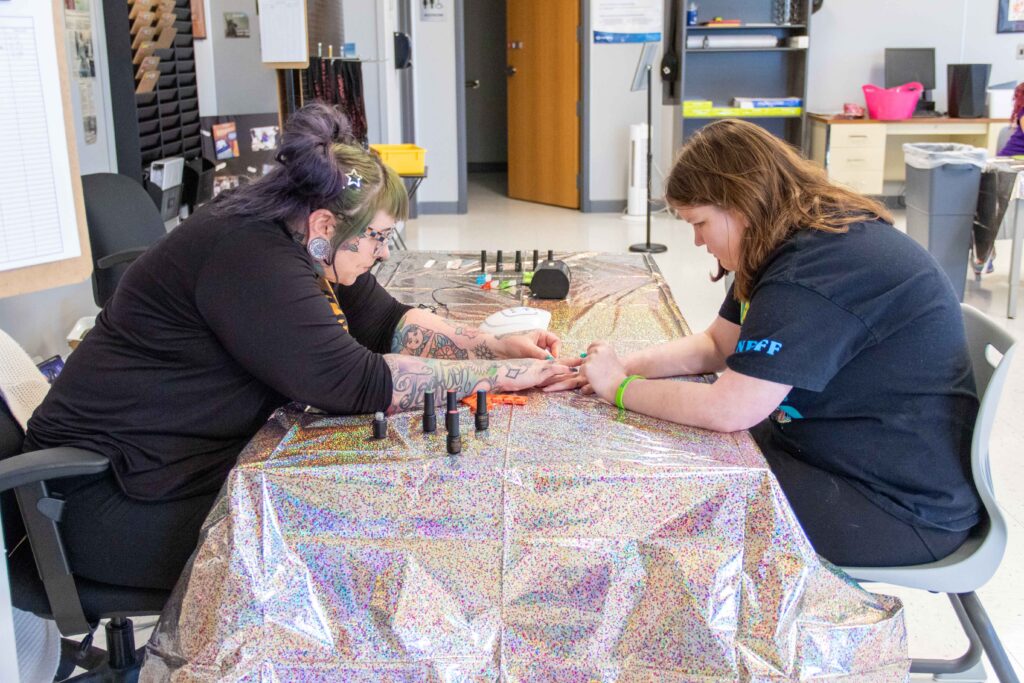
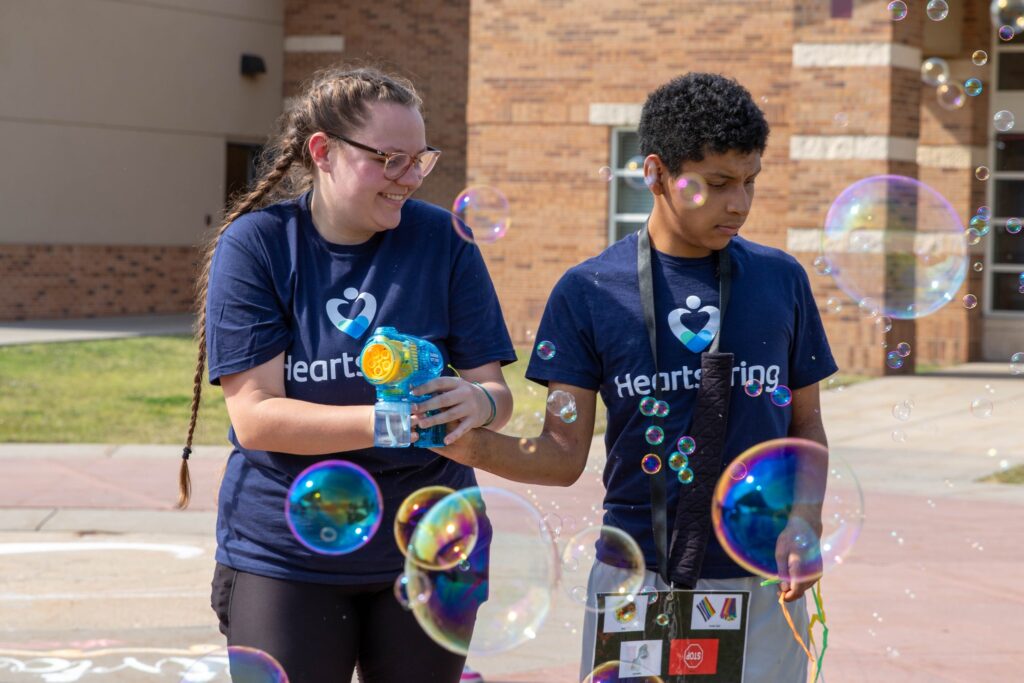

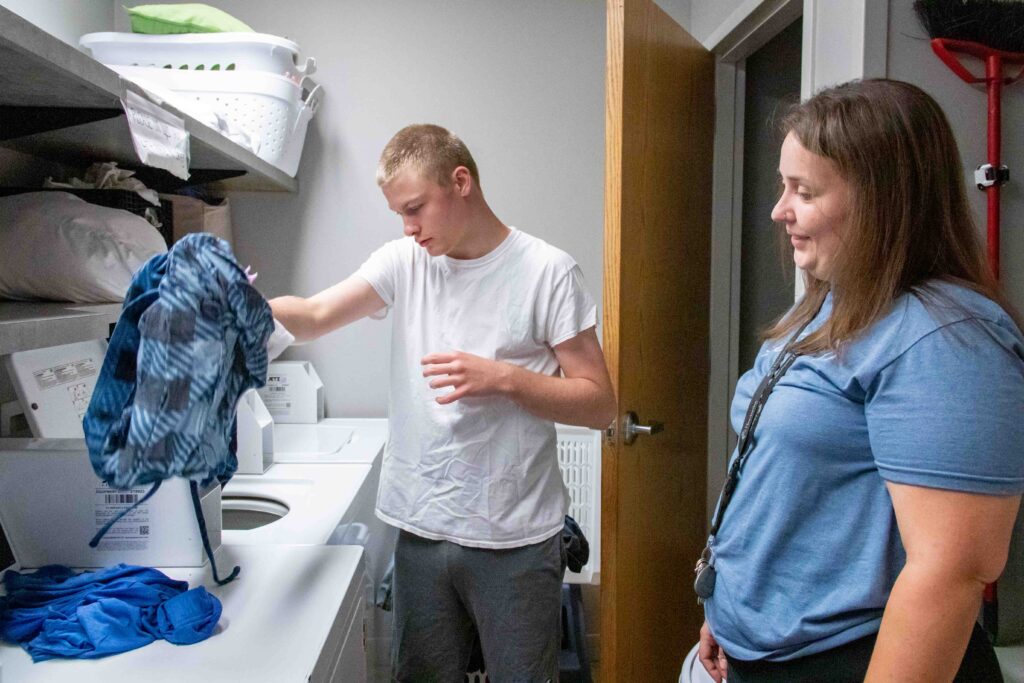

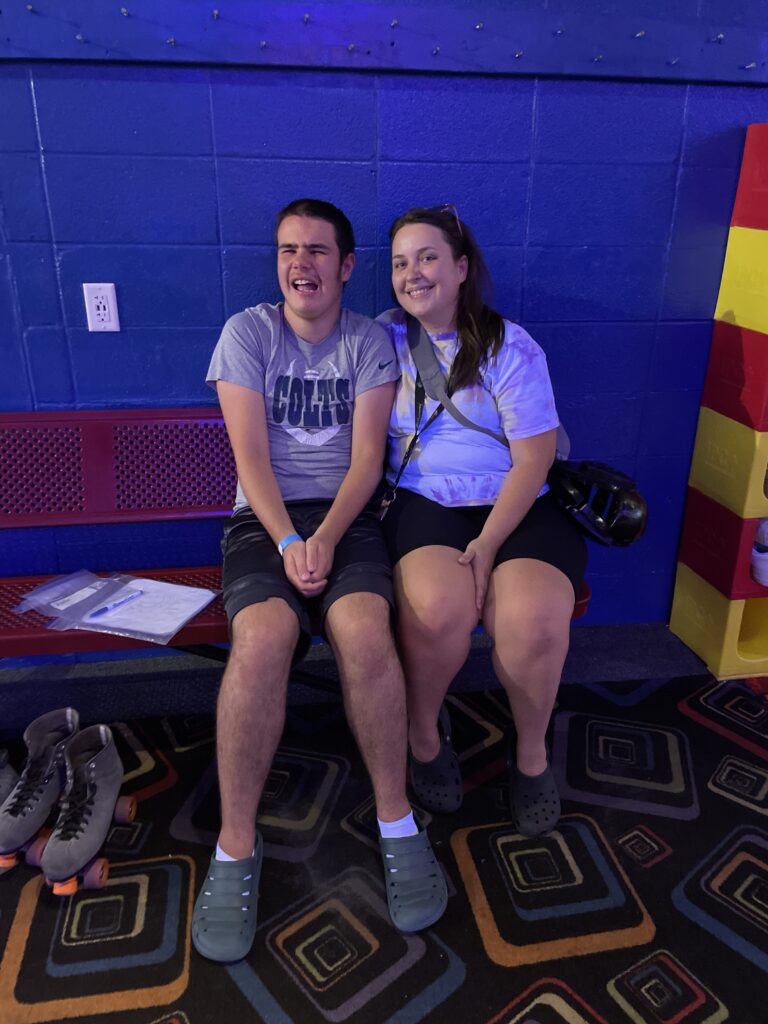
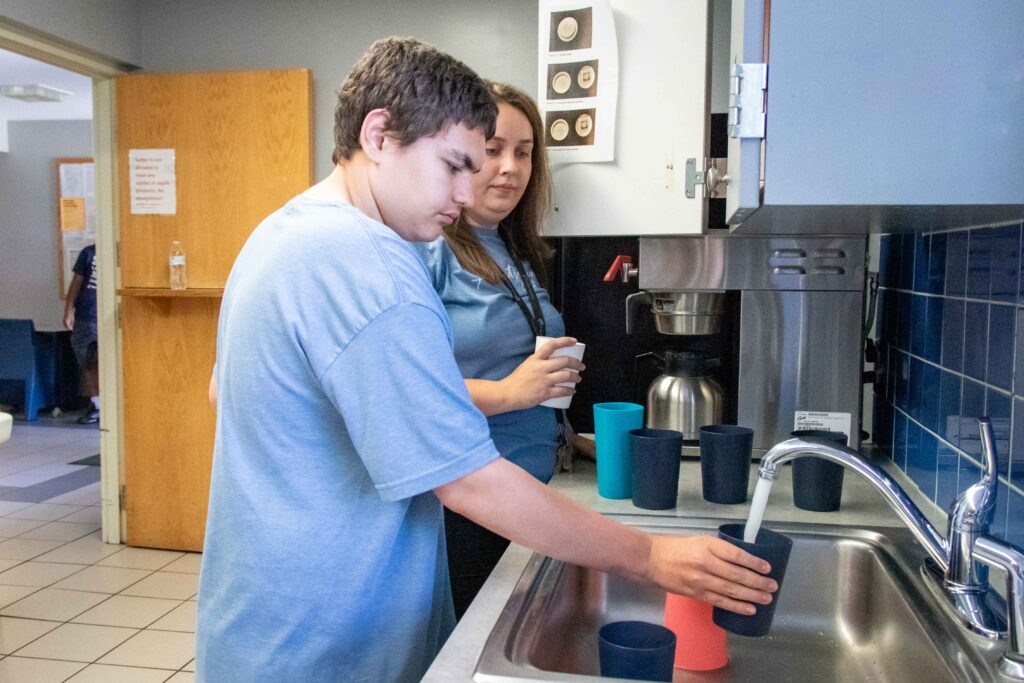
Learn More About the Heartspring School
The Heartspring Therapeutic School serves local, day-only students and residential students from all around the country.
Therapeutic Special Education
We offer a full continuum of care, ensuring each student receives the support outlined in their individualized education program (IEP).
Multidisciplinary Therapy
Our staff create comprehensive treatment plans that consider every facet of a child’s development.
School Admissions
Our best-fit enrollment model ensures we serve students and families to the best of our ability.
